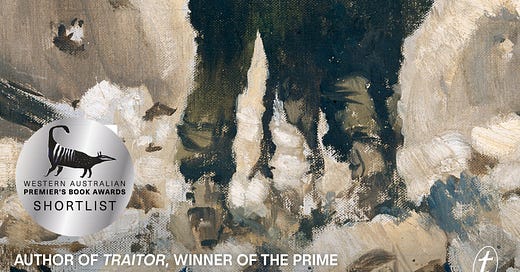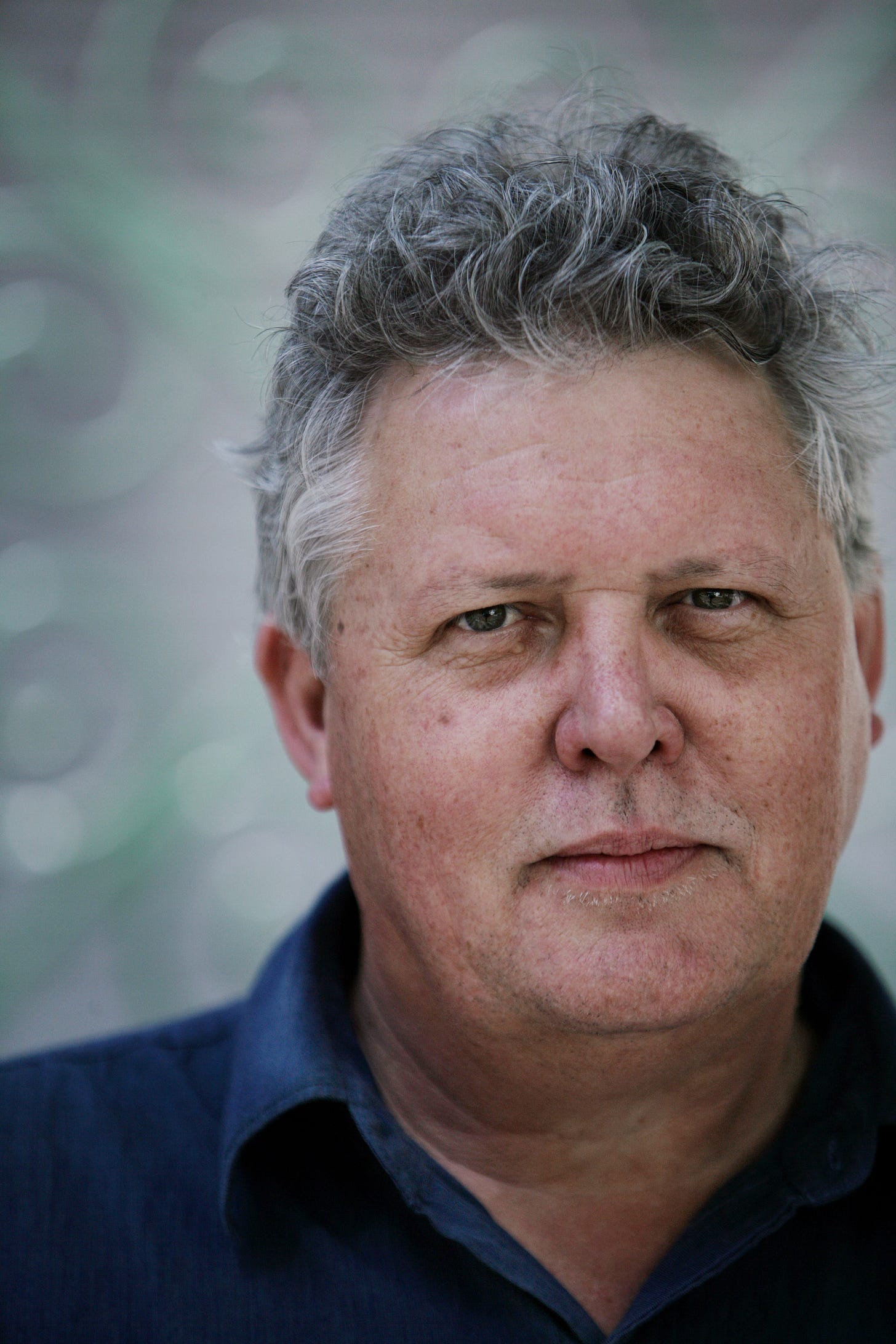WA author Stephen Daisley on his WA Premier's Book of the Year shortlisted novel, A Better Place
Writing WA's Laurie Steed talks to Stephen Daisley about nature, war, masculinity and more
Stephen Daisley was born in 1955 and grew up in the North Island of New Zealand. He has worked on sheep and cattle stations, on oil and gas construction sites and as a truck driver, among many other jobs.
His first novel, Traitor, won the 2011 Prime Minister’s Literary Award for Fiction. Coming Rain won the Ockham Prize in 2015. Stephen lives in Western Australia.
A Better Place book cover.
Laurie Steed: Stephen, congratulations on your book, A Better Place, being shortlisted for this year’s WA Premier's Book of the Year Prize, as sponsored by Writing WA. How has the journey been with this particular novel as opposed to your earlier two? Was it an easier or harder book to write than those, and why?
Stephen Daisley: Thank you for the congratulations. I find this an incredible and deeply humbling honour to be recognised by WA.
As my Mum used to say: means the world.
I consider this book to be the best I could do. And took my inspiration from people like Samuel Beckett, who said: ‘Learn to fail better. But keep bloody going.’…And I guess I did.
It took five long years but with children grown up (we have 5) it was easier. Also, I had retired and was eligible for a pension, so I had more time.
LS: In A Better Place, I found a continuation of your short, sharp style of sentence construction. This time around it struck me that yours is the voice of a particular kind of masculinity. Whose voices do you want to capture in your work, and what parts of their experience do you want to bring to life that might previously have been hidden or kept secret?
SD: I use Henry Lawson as my inspiration in many situations. I was also lucky enough to be taught by Marion Campbell and Gail Jones, both brilliant WA writers. Hence my attempts to ‘empower’ the reader to tell her/his story from my attempts. This is a riff on the famous Roland Barthes quip of the death of the writer. But I strongly believe that the reader tells the story. The writer just sort of points the way as it were. Remember: don’t look at the hand, look at what hand is pointing at and tell your story.
The understanding of this ‘type’ of stoical masculinity and the ‘empowerment’ of the reader, I believe is vital, especially for our young men who, indeed, need to tell their stories.
Stephen Daisley. Picture: Darren James.
LS: Do you think there is such a thing as a just war? Do you think ideas of what's reasonable, what's logical, or what's necessary are more helpful when objectively assessing a war?
SD: Tragically as are currently seeing in Gaza and the Ukraine, war does not occur in isolation and all our brothers and sisters are deeply, deeply traumatised by it. For my generation, our grandfathers, grandmothers, mother and fathers were often deeply damaged by the horror.
LS: On page 105 of A Better Place you write of a dead cow disappearing over a newly made waterfall, and how its 'hooves had left scrape marks along the clay bank of the far side.' Do you find nature in your work is grounding to your characters, unforgiving to them, or does the truth encompass both these attributes? Indeed, can a writer only present the natural world as an idyll with any genuine sincerity?
SD: I believe that we are all intimately connected with the natural world. This is the wisdom that many Indigenous people throughout the world have always known (in their bones). David Malouf writes about this beautifully in An Imaginary Life and thus, in A Better Place I write about how we are ‘made’ by the earth to which we return. An ancient trope.
LS: Why do you think you write, and why do you think you write novels? Do you now think of yourself solely as a novelist, or is it more that you've not yet tried your hand at poetry or non-fiction?
SD: I don’t know why I am a writer. I fell off a horse when I was ten and was concussed for a week.
I never told my father I wanted to be a writer. I told him once I loved him and he replied that Canterbury had won the football.
I told my mother and she said, ‘Don’t worry darling, you will grow out of it and are you going to milk the cows in the morning?’
So, to put it in the vernacular: I’m buggered if I know really why I wanted to write stories.
I have enormous admiration for poets and writers of non-fiction but, as my brother would say; Stevie is a bit of a dreamer really. Not too good on reality.
So he got me a job in a shearing gang. To sort me out, he said.
A Better Place is published by Text Publishing ($32.99) The WA Premier’s Book Awards are announced 7 June, 2024.





